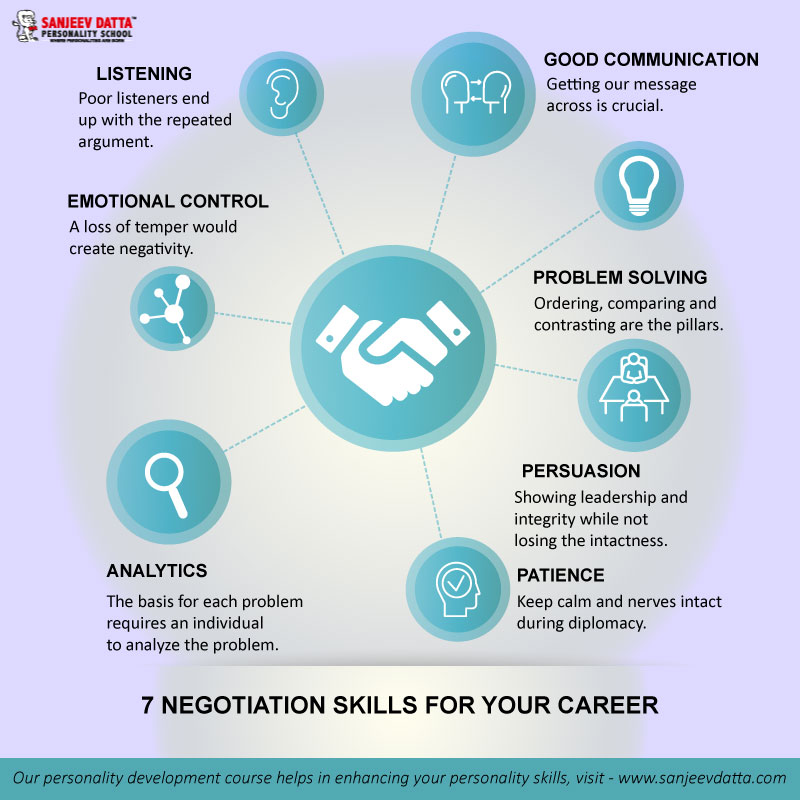Navigating a successful career is often a delicate balance between making the right decisions and avoiding common pitfalls. In today’s competitive job market, professionals must not only excel in their chosen fields but also strategically steer clear of mistakes that could derail their progress. This article delves into the most common career mistakes to avoid, offering insights and actionable advice to help you achieve long-term success.
The Importance of Avoiding Career Mistakes
Embarking on a career is much like setting off on a journey; the path is rarely straightforward, and along the way, you’ll encounter numerous decisions that will shape your professional future. While the desire to succeed drives most professionals, the reality is that many fall prey to common mistakes that can stall or even derail their progress. Understanding the career mistakes to avoid is crucial for anyone looking to not only advance but thrive in their chosen field.
The decisions you make early in your career can have long-lasting effects, and even seasoned professionals are not immune to missteps. Whether it’s underestimating the importance of networking, neglecting continuous learning, or failing to negotiate your salary, the repercussions of these mistakes can be significant. This article aims to highlight the most common career mistakes to avoid, providing you with the tools and knowledge to navigate your career path with confidence and clarity.
1. Failing to Set Clear Career Goals
One of the most detrimental career mistakes to avoid is failing to set clear, actionable career goals. Without a defined direction, your career can quickly become stagnant, and you may find yourself drifting from one job to another without any real sense of purpose.
Why It’s a Mistake?
Setting career goals is akin to having a roadmap for your professional journey. Without them, you may struggle to stay motivated, miss out on opportunities for advancement, and ultimately feel unfulfilled in your career. Moreover, employers often look for goal-oriented individuals who have a clear vision of their future. Not having goals can make you appear directionless and less committed to your professional growth.
How to Avoid It?
- Define Your Long-Term Vision: Think about where you want to be in five, ten, or even twenty years. What kind of role do you see yourself in? What skills do you want to develop? Use these questions to shape your long-term career goals.
- Set SMART Goals: Ensure that your goals are Specific, Measurable, Achievable, Relevant, and Time-bound (SMART). For example, rather than saying “I want to get promoted,” specify “I want to become a project manager within the next two years by completing a certification and leading successful projects.”
- Break Down Goals into Smaller Steps: Once you have your long-term goals, break them down into smaller, more manageable steps. This will make your goals feel more achievable and help you stay on track.
- Review and Adjust Regularly: Your career goals should evolve as you progress in your career. Regularly review your goals and adjust them as necessary to reflect your growth and changes in your aspirations.

2. Neglecting Networking
Networking is an essential component of career success, yet it’s a step many professionals overlook or underestimate. Failing to build and maintain a strong professional network is a significant career mistake to avoid.
Why It’s a Mistake?
Networking isn’t just about exchanging business cards or connecting on LinkedIn; it’s about building relationships that can lead to new opportunities, mentorship, and collaboration. A strong network can provide support during job searches, open doors to new roles, and offer insights into industry trends. Without a robust network, you may miss out on opportunities that could significantly advance your career.
How to Avoid It?
- Be Proactive: Don’t wait for networking opportunities to come to you. Attend industry events, conferences, and seminars where you can meet professionals in your field.
- Leverage Online Platforms: Use social media and professional networking sites like LinkedIn to connect with peers, join industry groups, and participate in discussions.
- Maintain Relationships: Networking isn’t a one-time activity. Keep in touch with your contacts, even when you’re not actively seeking new opportunities. A simple message or coffee meeting can go a long way in maintaining these connections.
- Give as Much as You Get: Networking is a two-way street. Offer your help, share resources, and support others in their professional journeys. Building a network based on mutual respect and assistance will yield better long-term relationships.
Visit: tips for career management
3. Overlooking Continuous Learning and Skill Development
In today’s fast-paced world, technology and industry standards are constantly evolving. One of the critical career mistakes to avoid is neglecting continuous learning and failing to develop new skills.
Why It’s a Mistake?
Relying solely on your existing skills can make you obsolete in a rapidly changing job market. Employers value professionals who are committed to their personal and professional development. By not updating your skills, you risk falling behind your peers, missing out on promotions, and becoming less marketable.
How to Avoid It?
- Stay Updated on Industry Trends: Regularly read industry publications, attend webinars, and participate in workshops to stay informed about the latest trends and developments in your field.
- Pursue Further Education: Consider enrolling in courses, certifications, or even degree programs that can enhance your qualifications and open up new career opportunities.
- Learn New Technologies: As technology continues to play a significant role in most industries, familiarize yourself with the tools and software that are becoming standard in your field.
- Seek Feedback: Regularly seek feedback from peers and supervisors to identify areas where you can improve or acquire new skills. Use this feedback to guide your learning efforts.

4. Avoiding Risk and Staying in Your Comfort Zone
Staying in your comfort zone may feel safe, but it can be a significant barrier to career growth. One of the key career mistakes to avoid is refusing to take risks, as this can prevent you from reaching your full potential.
Why It’s a Mistake?
Playing it safe might protect you from failure, but it also limits your opportunities for growth, learning, and advancement. Professionals who are willing to take calculated risks are often the ones who achieve significant success. By avoiding risks, you may miss out on promotions, leadership roles, and other opportunities that could enhance your career.
How to Avoid It?
- Embrace New Challenges: Take on projects that push you outside your comfort zone. This could involve leading a team, managing a complex project, or taking on responsibilities that you’ve never handled before.
- Learn from Failures: View failures as learning opportunities rather than setbacks. Each failure can provide valuable lessons that will help you in your future endeavors.
- Seek Out New Opportunities: Don’t be afraid to apply for jobs or positions that seem slightly out of reach. Even if you don’t get the role, the experience will help you grow and prepare for future opportunities.
- Build a Support System: Surround yourself with mentors and colleagues who encourage you to take risks and support you when you do. Their guidance can help you navigate challenges and build confidence.
5. Ignoring Work-Life Balance
Maintaining a healthy work-life balance is crucial for long-term career success and personal well-being. However, it’s a common career mistake to overlook this balance in pursuit of professional achievements.
Why It’s a Mistake?
Overworking can lead to burnout, decreased productivity, and strained relationships, both at work and at home. When your work-life balance is off, it can negatively impact your mental and physical health, leading to long-term consequences that can derail your career.
How to Avoid It?
- Set Boundaries: Establish clear boundaries between work and personal life. This could mean setting specific work hours and sticking to them or learning to say no to additional tasks when your plate is full.
- Prioritize Self-Care: Make time for activities that help you relax and recharge, whether it’s exercise, hobbies, or spending time with loved ones. Prioritizing self-care is essential for maintaining your well-being and preventing burnout.
- Take Breaks: Don’t underestimate the power of taking regular breaks during the workday. Short breaks can help you stay focused, reduce stress, and improve overall productivity.
- Communicate Your Needs: If you’re struggling to maintain a healthy work-life balance, communicate with your employer or supervisor. Discuss potential solutions, such as flexible work hours or the ability to work from home when needed. Confidence isn’t something you’re born with—it’s something you build. Start building yours today with our personality development training.

6. Not Seeking Mentorship
Mentorship can play a pivotal role in your career development, offering guidance, support, and valuable insights. Failing to seek out a mentor is a significant career mistake to avoid.
Why It’s a Mistake?
Without a mentor, you may miss out on opportunities to learn from someone with more experience, avoid common pitfalls, and gain a broader perspective on your career. Mentors can also provide valuable connections, help you navigate challenging situations, and offer encouragement when you’re facing obstacles.
How to Avoid It?
- Identify Potential Mentors: Look for individuals in your industry who have the experience and expertise you admire. These could be senior colleagues, industry leaders, or even someone outside your immediate workplace.
- Build a Relationship: Approach potential mentors with respect and genuine interest. Express your admiration for their work and ask if they would be willing to offer guidance or advice as you progress in your career.
- Be Open to Feedback: A good mentor will provide honest feedback, even if it’s not always what you want to hear. Be open to their advice and use it to improve and grow in your career.
- Give Back: As you benefit from mentorship, look for opportunities to mentor others. This not only strengthens your own skills but also contributes to the professional community.
Visit: how to set goals for yourself
7. Underestimating the Power of Soft Skills
While technical skills and expertise are crucial, soft skills are equally important in achieving career success. Underestimating the value of soft skills is a common career mistake to avoid.
Why It’s a Mistake?
Soft skills, such as communication, teamwork, problem-solving, and adaptability, are essential for building strong professional relationships and thriving in a collaborative work environment. Without these skills, you may struggle to lead, manage conflicts, or work effectively with others, which can hinder your career progress.
How to Avoid It?
- Develop Communication Skills: Work on both your verbal and written communication skills. Practice active listening, clear articulation, and effective presentation skills to enhance your ability to convey ideas and collaborate with others.
- Cultivate Emotional Intelligence: Emotional intelligence involves understanding and managing your emotions and those of others. This skill is crucial for navigating workplace dynamics and building strong relationships.
- Enhance Problem-Solving Abilities: Develop your critical thinking and problem-solving skills by challenging yourself with complex tasks and seeking out diverse perspectives. This will help you approach problems with creativity and confidence.
- Embrace Teamwork: Learn to work effectively in teams by being open to feedback, respecting different viewpoints, and contributing positively to group efforts. Strong teamwork skills are essential for success in most professional settings.

8. Failing to Negotiate Salary and Benefits
Negotiating your salary and benefits is an essential part of the job-seeking process, yet many professionals make the mistake of accepting the first offer without negotiation.
Why It’s a Mistake?
Failing to negotiate can result in lower compensation, fewer benefits, and diminished job satisfaction. Over time, this can lead to frustration and a sense of being undervalued. Additionally, employers often expect candidates to negotiate, and doing so demonstrates your confidence and understanding of your worth.
How to Avoid It?
- Do Your Research: Before entering negotiations, research industry salary standards, the cost of living in your area, and the average compensation for similar roles. This information will provide a solid foundation for your negotiation.
- Practice Negotiation Skills: Prepare for salary negotiations by practicing with a friend or mentor. Role-playing different scenarios can help you feel more confident and prepared during the actual negotiation.
- Consider the Whole Package: When negotiating, take into account not only the salary but also benefits such as health insurance, retirement plans, vacation time, and opportunities for professional development. Sometimes, these benefits can be just as valuable as salary.
- Be Willing to Walk Away: If the offer doesn’t meet your expectations and there’s no room for negotiation, be prepared to walk away. Accepting a position with inadequate compensation can lead to long-term dissatisfaction. Master the art of communication and leadership—our personality development course is designed to make you stand out!

9. Not Building a Personal Brand
In the digital age, your personal brand is an integral part of your professional identity. Failing to build and manage your personal brand is a career mistake to avoid.
Why It’s a Mistake?
Your personal brand is how you present yourself to the professional world. It influences how colleagues, employers, and industry peers perceive you. Without a strong personal brand, you may struggle to stand out in a competitive job market and miss out on opportunities that align with your career goals.
How to Avoid It?
- Define Your Brand: Consider what you want to be known for professionally. What are your strengths, values, and passions? Use this information to shape your personal brand.
- Leverage Social Media: Use platforms like LinkedIn to showcase your expertise, share insights, and engage with industry peers. Regularly update your profile, share relevant content, and participate in discussions to enhance your online presence.
- Create a Portfolio: If applicable, create a portfolio that showcases your work, achievements, and skills. This could include writing samples, project summaries, or case studies that highlight your contributions.
- Be Consistent: Ensure that your personal brand is consistent across all platforms, from your resume and cover letter to your social media profiles and personal website. Consistency helps build credibility and trust.
10. Staying in a Job You Dislike
While job stability is important, staying in a role that makes you unhappy is one of the most damaging career mistakes to avoid. Unhappiness at work can affect not only your productivity but also your overall well-being.
Why It’s a Mistake?
Remaining in a job that you dislike can lead to burnout, decreased motivation, and even mental health issues. It can also prevent you from pursuing opportunities that align with your passions and career goals. Over time, this dissatisfaction can spill over into other areas of your life, affecting your personal relationships and overall happiness.
How to Avoid It?
- Identify the Source of Unhappiness: Reflect on what specifically is causing your dissatisfaction at work. Is it the work environment, your responsibilities, or a lack of growth opportunities? Understanding the root cause will help you determine the best course of action.
- Explore Internal Opportunities: Before deciding to leave, explore opportunities within your current organization. This could involve transferring to a different department, taking on new projects, or seeking additional responsibilities that align with your interests.
- Prepare for a Job Search: If leaving is the best option, start preparing for your job search by updating your resume, enhancing your skills, and networking. Approach your job search with a clear understanding of what you’re looking for in your next role.
- Prioritize Your Well-Being: Your mental and physical health should always come first. If a job is taking a toll on your well-being, it’s essential to make a change, whether that means finding a new role or taking time off to recharge.
11. Overcommitting and Under-Delivering
While taking on challenges is important, overcommitting yourself can lead to under-delivering, which can damage your reputation and hinder your career progression.
Why It’s a Mistake?
When you take on more than you can handle, you risk spreading yourself too thin, which can result in missed deadlines, poor-quality work, and increased stress. This can lead to a negative perception of your abilities and reliability, ultimately hindering your career growth.
How to Avoid It?
- Assess Your Capacity: Before agreeing to take on additional tasks or projects, assess your current workload and capacity. Be honest with yourself and others about what you can realistically accomplish.
- Prioritize Tasks: Prioritize your tasks based on their importance and deadlines. Focus on completing high-priority tasks first, and delegate or postpone less critical work if necessary.
- Learn to Say No: It’s important to set boundaries and learn to say no when your plate is full. Politely decline additional work or negotiate deadlines to ensure you can deliver quality results on your existing commitments.
- Communicate Effectively: If you find yourself struggling to meet a deadline, communicate with your supervisor or team as early as possible. Transparency allows for adjustments to be made and prevents last-minute surprises.
12. Not Taking Ownership of Your Career
Your career is ultimately your responsibility. One of the most crucial career mistakes to avoid is failing to take ownership of your professional development and success.
Why It’s a Mistake?
Relying solely on your employer or waiting for opportunities to come to you can limit your growth and advancement. Taking ownership of your career means actively seeking out opportunities, setting goals, and continuously working to improve yourself. Without this proactive approach, you risk stagnating in your current role and missing out on potential advancements.
How to Avoid It?
- Set Personal Goals: In addition to the goals set by your employer, establish your own career goals and work towards them independently. This could involve pursuing additional training, seeking new challenges, or exploring different career paths.
- Seek Feedback and Act on It: Regularly seek feedback from your supervisors, colleagues, and mentors. Use this feedback to identify areas for improvement and take actionable steps to address them.
- Be Proactive in Seeking Opportunities: Don’t wait for opportunities to come to you. Actively seek out new projects, volunteer for leadership roles, and explore opportunities for growth within and outside your organization.
- Invest in Your Development: Take charge of your learning and development by enrolling in courses, attending workshops, and reading industry-related books and articles. Continuous learning is key to staying relevant and advancing in your career.
Visit: benefits of self determination
Conclusion: Avoiding Career Mistakes for Long-Term Success
Navigating your career successfully requires more than hard work and dedication; it involves making strategic decisions and avoiding common pitfalls that hinder your progress. By recognizing and steering clear of these career mistakes to avoid, you can position yourself for long-term success, job satisfaction, and personal fulfillment.
Remember, your career is a journey; like any journey, it will have its ups and downs. The key is to learn from your experiences, seek continuous growth, and remain adaptable in the face of change. By doing so, you’ll avoid these common career mistakes and build a rewarding and successful career.

